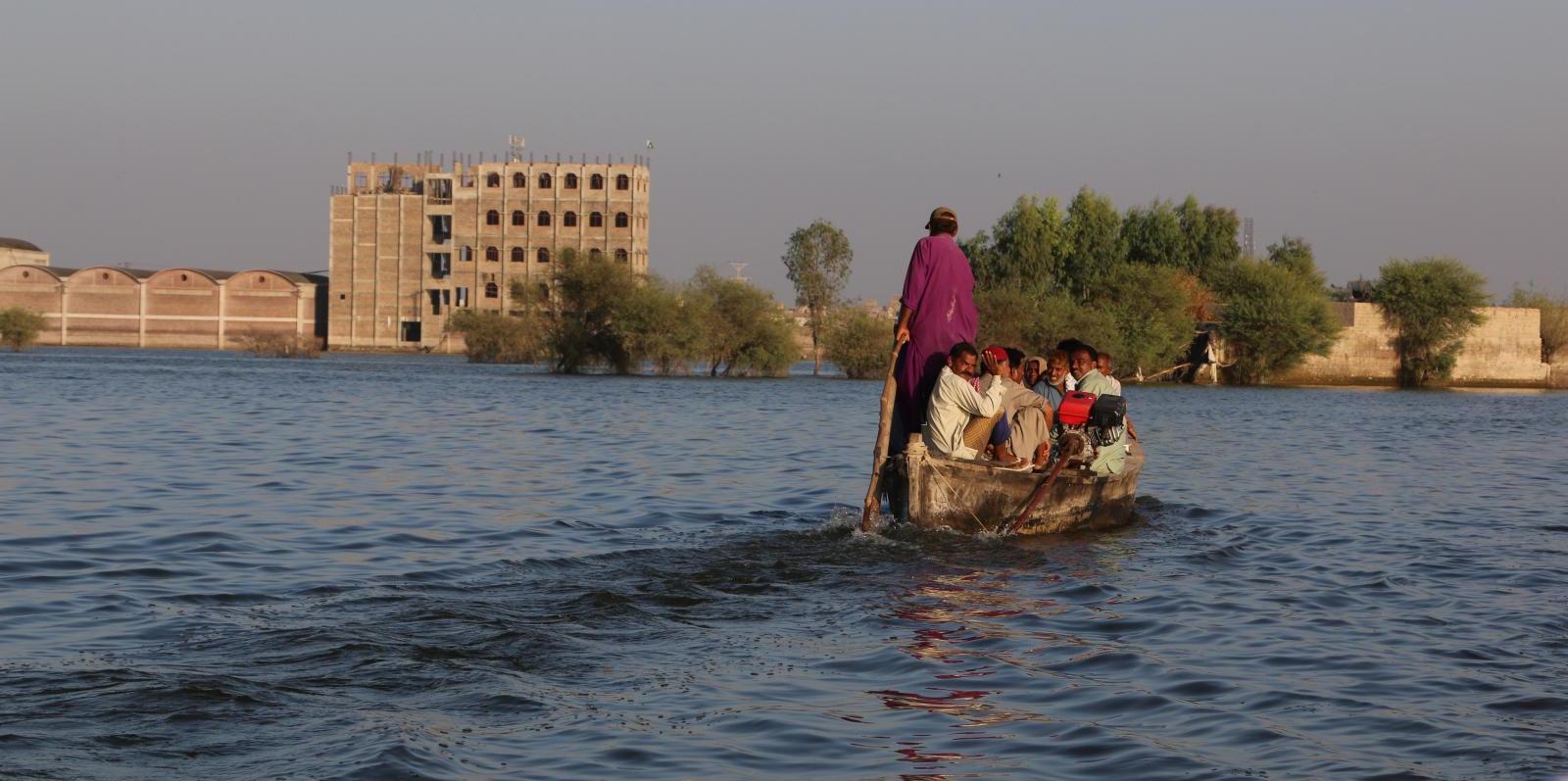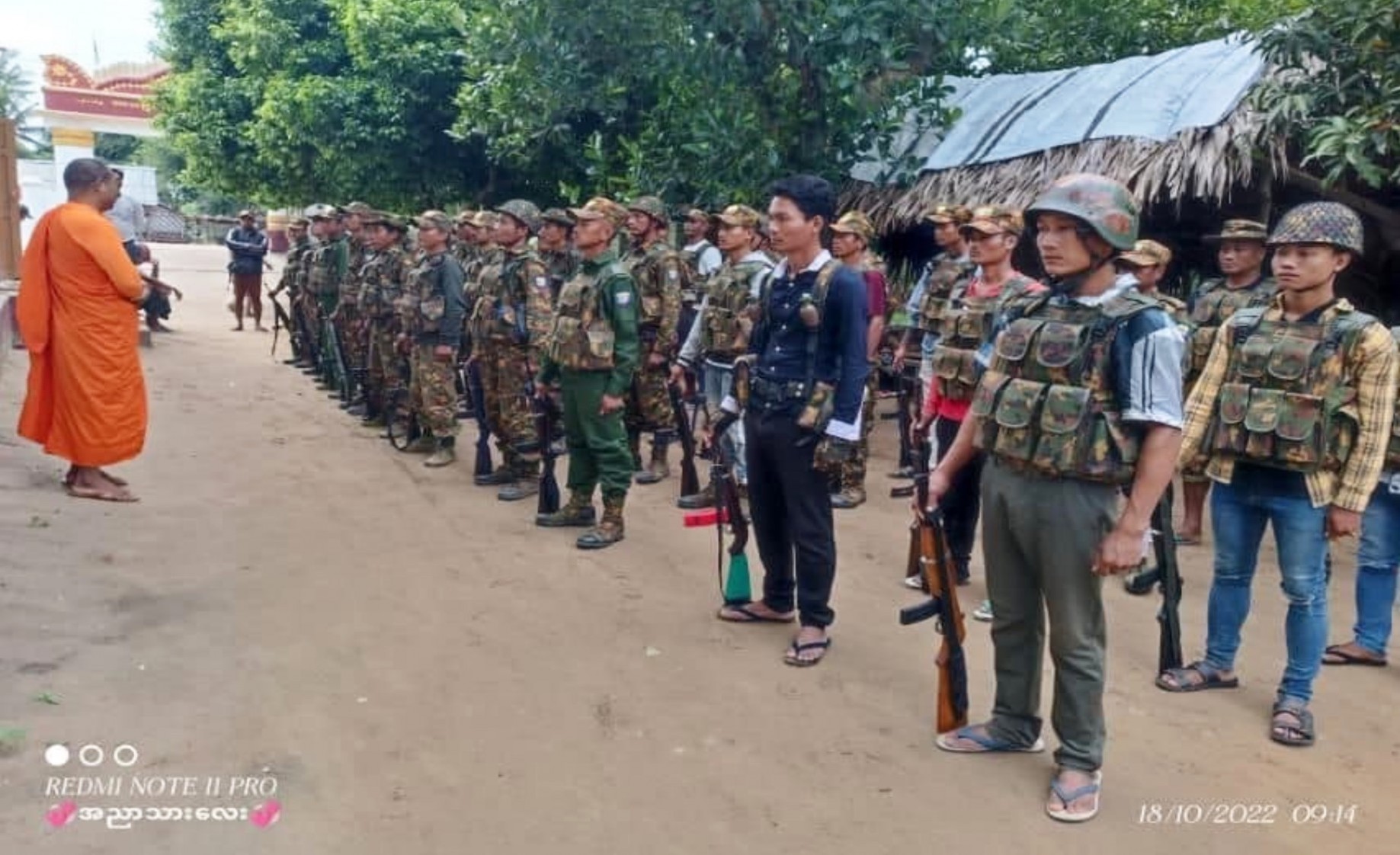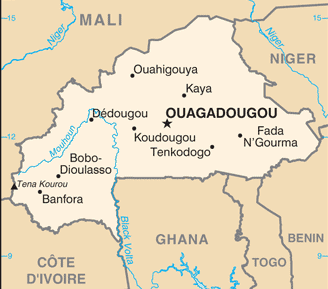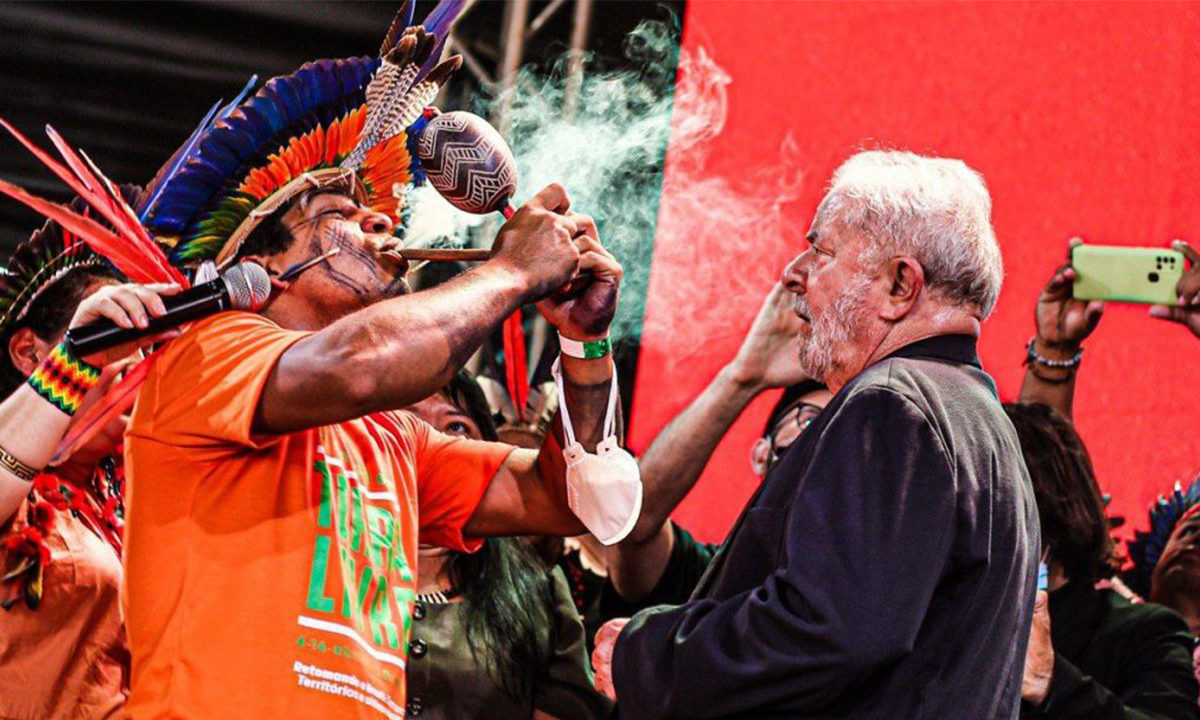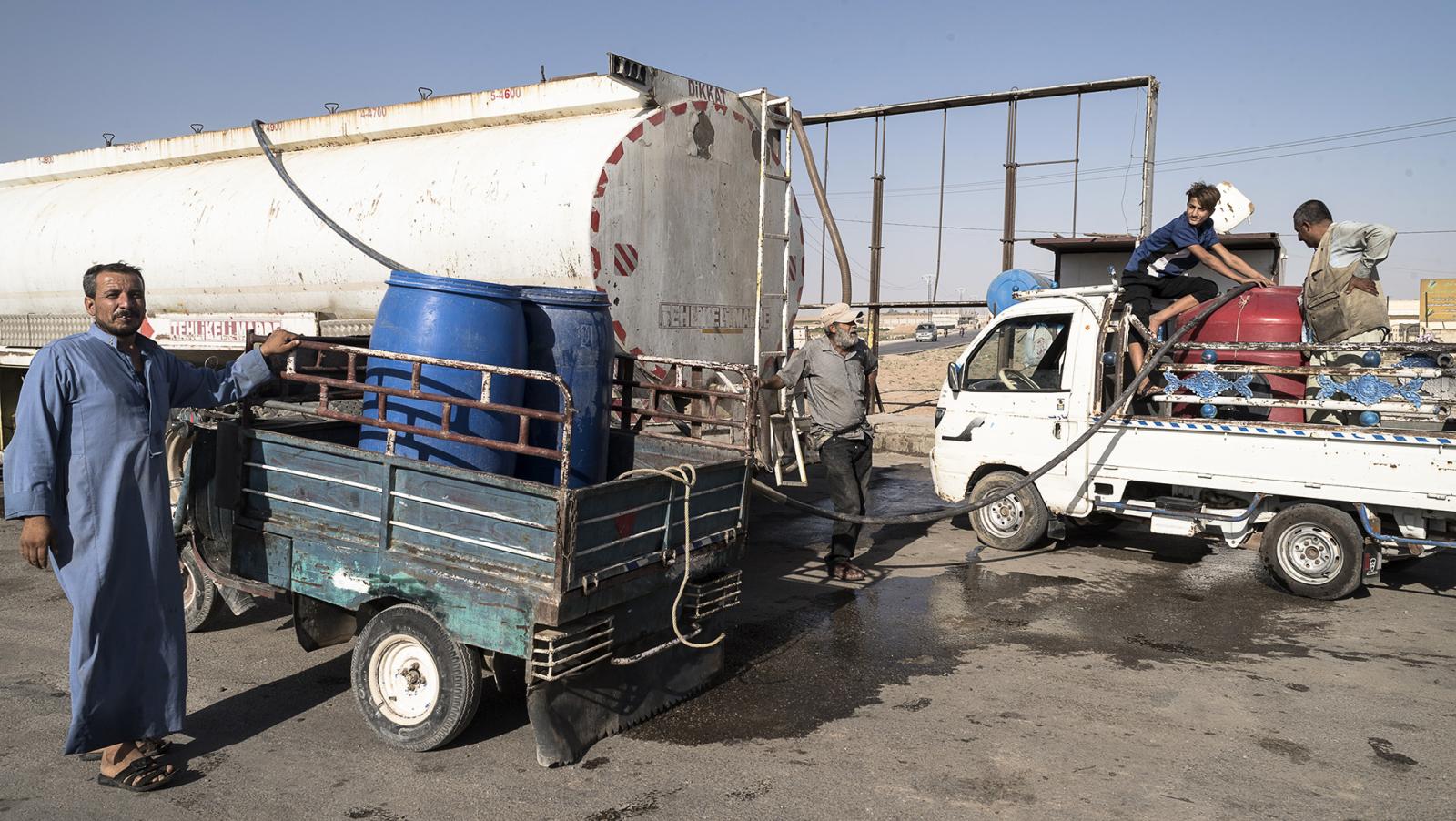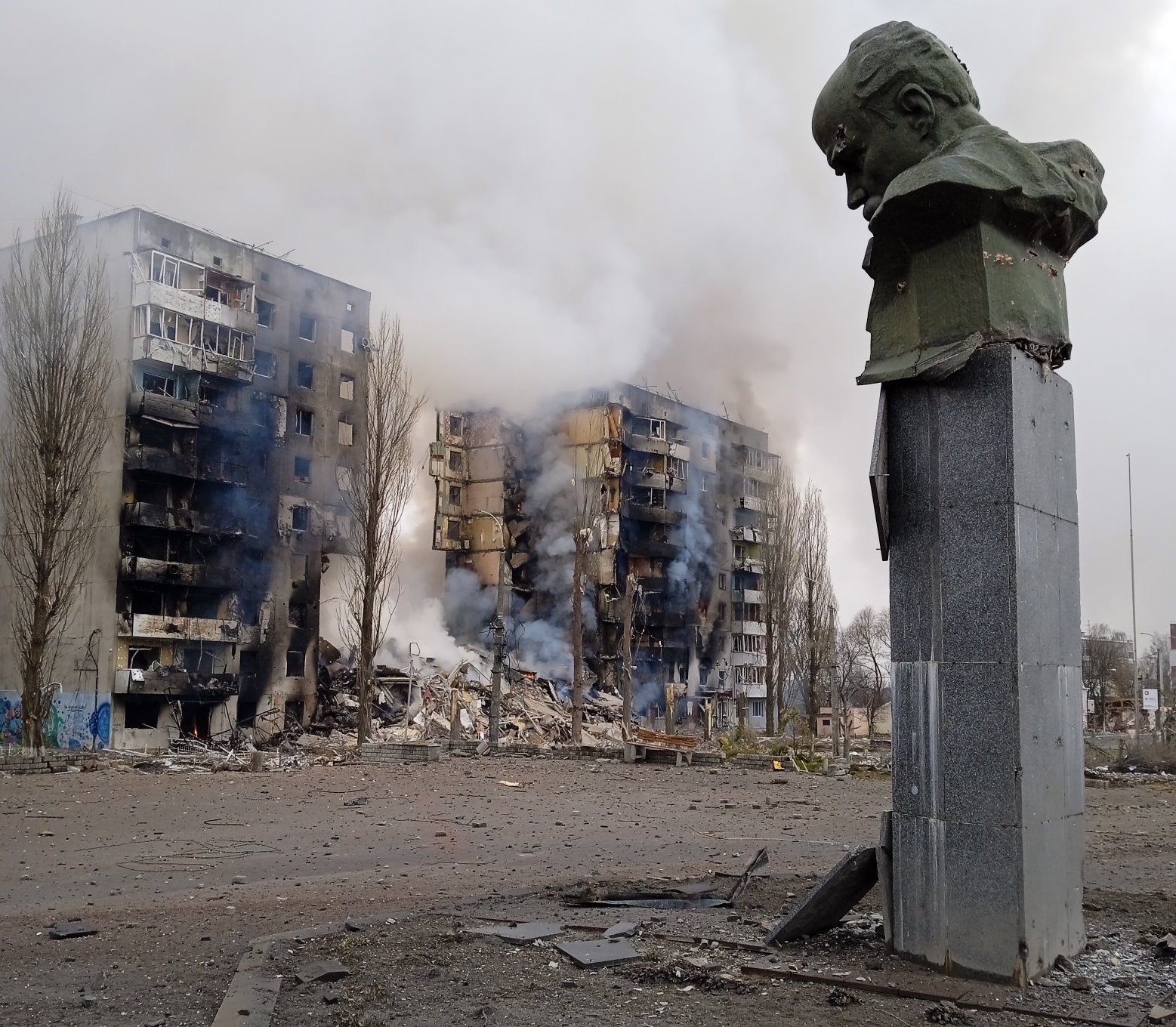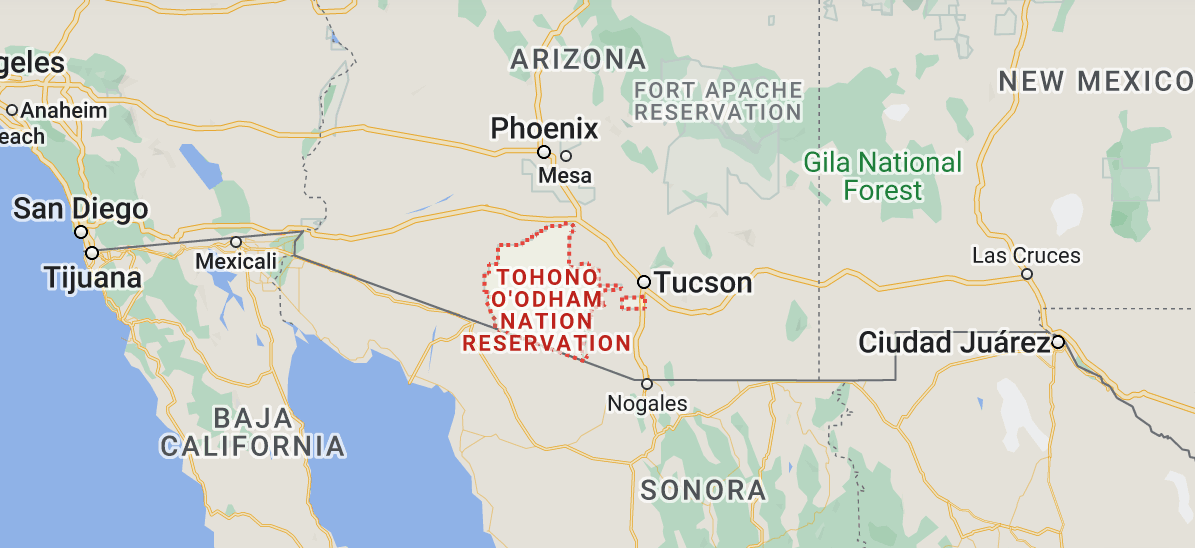
GOP lawmaker threatens new Indian war
In a little-noted interview on the right-wing online video show “In The Trenches with Teddy Daniels,” Arizona Republican Rep. Paul Gosar suggested that his party’s gubernatorial candidate, Kari Lake, could order the state’s National Guard to surround and blockade the Tohono O’odham Nation, a Native American reservation that borders Mexico, ensuring that “no one passes.” Gosar also offered the notion that Lake could go to the US Supreme Court to seek state authority over the reservation. The Tohono O’odham tribal government cooperates with the Border Patrol, but has long opposed plans for a border wall that would cut through their traditional territory. (Map via Google)



